
Finding the right excavator for your construction, landscaping, or demolition project can be a daunting task. With so many models and manufacturers to choose from, it's crucial to understand your specific needs and priorities. Are you looking for power, precision, reliability, or affordability? Perhaps a combination of all these factors? The John Deere 120 excavator, known for its robust design and versatile capabilities, frequently surfaces as a strong contender in the used equipment market. This article delves into the key features, benefits, and considerations when considering a John Deere 120 excavator for sale, providing you with the information necessary to make an informed decision. We'll explore its performance specifications, maintenance requirements, potential issues to watch out for, and ultimately, whether it's the right machine to meet your operational demands. Considering a used excavator requires a keen eye and understanding of the equipment's history; this article aims to equip you with precisely that.
WATCH
Performance and Specifications
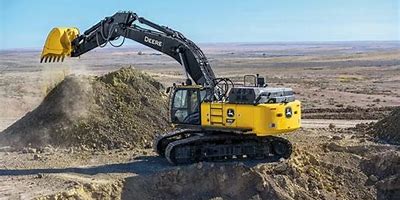
The John Deere 120 excavator boasts impressive performance characteristics, making it a versatile machine for various applications. Typically powered by a reliable diesel engine, it delivers ample horsepower for digging, lifting, and maneuvering in challenging terrains. Key specifications often include an operating weight ranging from 27,000 to 30,000 pounds, a dig depth of around 18 to 20 feet, and a reach of approximately 30 feet. These figures can vary slightly depending on the specific model year and any aftermarket modifications. The hydraulic system is designed for smooth and responsive operation, allowing operators to efficiently complete tasks with precision. Furthermore, the machine's undercarriage, track system, and overall stability contribute to its ability to handle demanding workloads with confidence. Understanding these core performance metrics is crucial when evaluating whether a John Deere 120 excavator can meet the specific requirements of your job site and operational goals.
WATCH
Key Features and Benefits
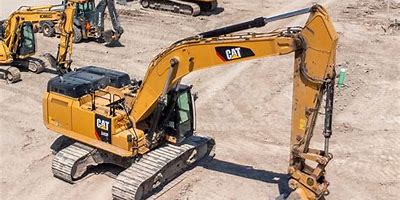
The John Deere 120 excavator is equipped with several features that contribute to its popularity and effectiveness. These machines are renowned for their comfortable and ergonomically designed operator cabs, which provide excellent visibility and reduce operator fatigue. The intuitive controls and instrumentation make it easy for operators to manage the machine's functions efficiently. Other notable features include:
**Powerful Engine:** Delivering ample horsepower for demanding digging and lifting tasks.
**Hydraulic System:** Ensuring smooth and responsive operation for precise control.
**Durable Undercarriage:** Providing stability and traction in various terrains.
**Versatile Attachments:** Compatible with a range of attachments, such as buckets, breakers, and grapples, to adapt to different applications.
These features, combined with the machine's robust construction and reliable performance, make the John Deere 120
excavator a valuable asset for any construction or earthmoving operation. The ease of maintenance and readily available parts further enhance its long-term value and reduce downtime.
WATCH
Maintenance and Service Requirements
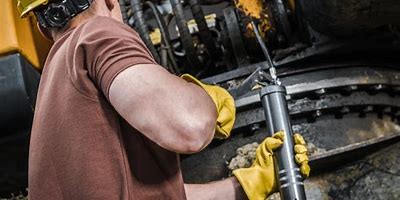
Proper maintenance is paramount to ensure the longevity and optimal performance of any excavator, including the John Deere 120. Regular servicing should include:
**Fluid Checks:** Monitoring engine oil, hydraulic fluid, coolant, and other essential fluids to ensure they are at the correct levels and free from contamination.
**Filter Replacements:** Changing air filters, fuel filters, and hydraulic filters at recommended intervals to maintain system cleanliness and efficiency.
**Greasing:** Lubricating all grease points on the machine, such as bushings, bearings, and joints, to reduce friction and wear.
**Inspection of Undercarriage:** Checking the tracks, rollers, sprockets, and idlers for wear and damage, and making necessary adjustments or replacements.
**Hydraulic System Inspection:** Examining hoses, cylinders, and pumps for leaks, cracks, or other signs of damage.
Following a strict maintenance schedule can significantly extend the life of the
excavator and prevent costly repairs. It is also essential to keep accurate records of all maintenance activities to track the machine's history and identify potential issues early on. When purchasing a used John Deere 120
excavator, ask for maintenance records to assess the previous owner's diligence in maintaining the machine.
WATCH
Potential Issues to Watch Out For
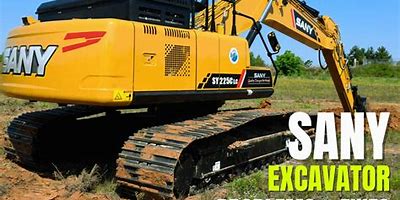
Like any piece of heavy machinery, the John Deere 120 excavator can be susceptible to certain issues, especially as it ages. Some common problems to watch out for include:
**Hydraulic Leaks:** These can occur in hoses, cylinders, or pumps and can lead to reduced performance and potential damage if not addressed promptly.
**Engine Problems:** Issues such as overheating, excessive smoke, or unusual noises may indicate underlying engine problems that require attention.
**Undercarriage Wear:** The undercarriage is a high-wear area, and excessive wear on the tracks, rollers, or sprockets can significantly impact the machine's performance and stability.
**Electrical Issues:** Faulty wiring, sensors, or control modules can cause various operational problems.
**Boom and Stick Cracks:** Inspect the boom and stick for any signs of cracks or welding repairs, which may indicate structural weaknesses.
A thorough inspection of the
excavator before purchase is essential to identify any existing or potential issues. Consider hiring a qualified mechanic to perform a pre-purchase inspection to gain a comprehensive assessment of the machine's condition.
WATCH
Pricing and Availability
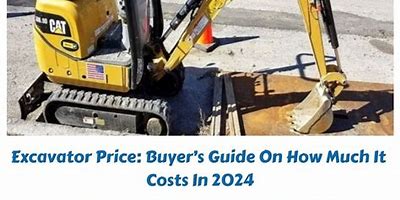
The price of a used John Deere 120 excavator can vary significantly depending on several factors, including its age, condition, hours of operation, and location. Older models with higher hours will generally be priced lower than newer, well-maintained machines. Market conditions and the availability of similar excavators in your area can also influence pricing.
To get an accurate estimate of the fair market value, it's recommended to research recent sales of similar machines in your region. Online marketplaces, auction sites, and equipment dealers can provide valuable pricing data. Be sure to compare the specifications and condition of the excavators you are comparing to ensure you are making an apples-to-apples comparison. Availability can also vary depending on your location and the current demand for used equipment. Working with a reputable equipment dealer can help you find the right machine at a competitive price.
WATCH
Alternatives to the John Deere 120

While the John Deere 120 excavator is a capable machine, it's essential to consider other options before making a final decision. Several manufacturers offer excavators in the same size and performance class that may offer different features or benefits. Some popular alternatives include:
**Caterpillar 312:** Known for its reliability and durability.
**Komatsu PC138:** Offering a balance of performance and fuel efficiency.
**Volvo EC140:** Emphasizing operator comfort and safety features.
**Hitachi ZX130:** Renowned for its smooth hydraulic operation.
Each of these machines has its own strengths and weaknesses, so it's essential to evaluate your specific needs and priorities before making a decision. Consider factors such as price, availability, maintenance costs, and operator preferences when comparing different models. Researching customer reviews and seeking advice from experienced
excavator operators can also provide valuable insights.
WATCH
Making the Right Decision
Ultimately, the decision of whether to purchase a John Deere 120 excavator for sale depends on your specific circumstances and requirements. Consider the following factors:
**Budget:** Determine your budget and stick to it. Be sure to factor in potential repair costs and ongoing maintenance expenses.
**Project Requirements:** Evaluate the type of work you will be performing and ensure that the excavator has the necessary capabilities and attachments to handle the tasks.
**Condition of the Machine:** Conduct a thorough inspection of the excavator and address any potential issues before making a purchase.
**Maintenance History:** Review the maintenance records to assess the previous owner's diligence in caring for the machine.
**Operator Comfort:** Ensure that the excavator is comfortable and easy to operate, as this can significantly impact productivity and operator fatigue.
By carefully considering these factors and conducting thorough research, you can make an informed decision and choose the right
excavator to meet your operational needs and budget.
WATCH
Post a Comment for "John Deere 120 Excavator for Sale"